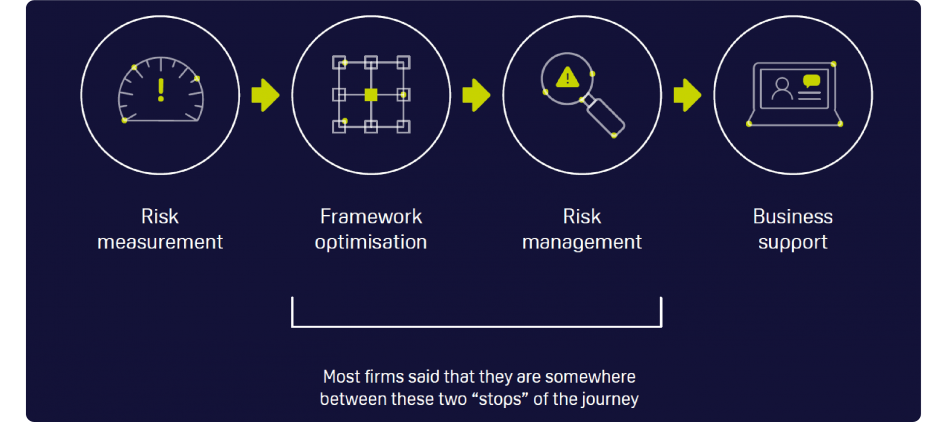White paper
Future of Operational Risk Scenarios White Paper
From risk measurement to risk management and beyond
Service
ORX Scenarios
Community
ORX Scenarios Community
Risk programme
Management, Practice & Framework
White Paper - March 2021
What does the future hold for operational risk scenario analysis? Throughout 2020, we held a series of conversations with operational risk managers, scenario practitioners and Heads of Operational Risk from financial firms based around the world to find out.
These discussions focused on three main themes:
- The current use of scenario analysis and recent developments within the framework
- The use of scenarios for active risk management
- Future use of the scenario methodology
From these discussions, we created a white paper, exploring the future of operational risk scenarios analysis.
About the white paper
The current state of operational risk scenario analysis
The white paper, Operational Risk Scenarios: From Risk Measurement to Risk Management, starts by looking at the original purpose of scenarios ‐ capital calculation – and how they are being used currently.
Our discussions showed that while scenario analysis is still primarily being used to support the measurement of operational risk, the industry is looking for opportunities to gain risk management benefit from the exercise. We found that most firms are working on framework improvements and optimisation, such as making the process less time consuming or using risk drivers.
Where firms are in their journey from risk measurement to risk management?

Evolving to support active risk management
The paper then explores how financial organisations can move from using scenario analysis for risk measurement to using it to deliver risk management benefits, covering examples such as playbooks and investing in controls. Finally, we look at how scenarios can be used to simulate business decisions.
Definition of the end-to-end scenario process
For the purposes of this handbook, we have defined three broad areas of advanced practice that build on the core components of the end-to-end scenario process:
- Portfolio maintenance and coverage
- Scenario development and assessment
- Integrated scenario usage
Building blocks of a robust scenario programme
There are five key foundations for a good scenario programme. The handbook provides a practical guide to each one.
1. Governance and oversight
Develop a framework for effective oversight and monitoring of your scenario programme and output quality.
2. Identification and selection
Ensure your scenario portfolio remains up-to-date, complete, and relevant on an on-going basis.
3. Review, refresh and archive
Ensure your review and reassessment process is effective and documented.
4. Preparation
Ensure you plan and prepare for workshops effectively.
5. Creation and assessment
Ensure you develop consistent qualitative and quantitative assessment processes.
Gated content stop
Disclaimer: ORX has prepared this resource with care and attention. ORX does not accept responsibility for any errors or omissions. ORX does not warrant the accuracy of the advice, statement or recommendations in this resource. ORX shall not be liable for any loss, expense, damage or claim arising from this resource. The content of this resource does not itself constitute a contractual agreement, and ORX accepts no obligation associated with this resource except as expressly agreed in writing. ©ORX 2026
Contacts:

Simon Johnson
Head of Services, ORX

Robert Reay-Jones
Scenarios Senior Manager, ORX






